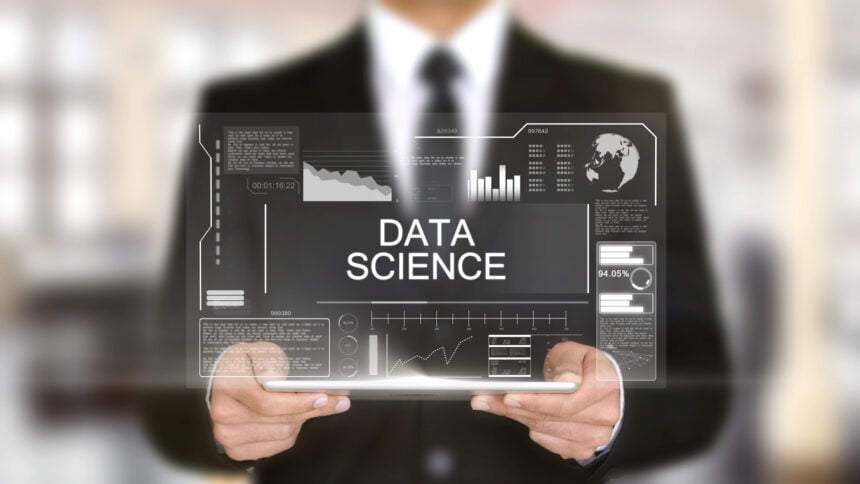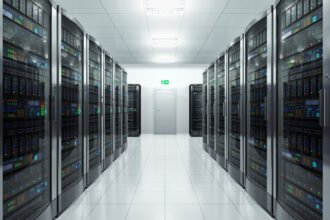The data science profession has become highly complex in recent years. Data science companies are taking new initiatives to streamline many of their core functions and minimize some of the more common issues that they face. They are using tools like Amazon SageMaker to take advantage of more powerful machine learning capabilities.
Amazon SageMaker is a hardware accelerator platform that uses cloud-based machine learning technology. It helps developers create and maintain highly effective machine learning applications that operate in the cloud. Although it is primarily cloud-based, SageMaker also works on embedded systems as well.
Although SageMaker has become a popular hardware accelerator since it was launched in 2017, there are plenty of other overlooked hardware accelerators on the market. If you want to streamline various parts of the data science development process, then you should be aware of all of your options. The right hardware accelerator can help significantly.
Here are some of the most common hardware accelerators.
Morphware
Morphware is a newer hardware accelerator, but it is already becoming very popular. It is a hardware accelerator with highly powerful computing capabilities that are able to handle state-of-the-art machine learning tasks. It allows people with excess computing resources to sell them to data scientists in exchange for cryptocurrencies.
One of the biggest advantages of Morphware over many other hardware accelerators is that it is a two-sided marketplace. Data scientists can access remote computing power through sophisticated networks. Companies and individuals with the computing power that data scientists might need are able to sell it in exchange for cryptocurrencies.
There are a lot of powerful benefits of offering an incentive-based approach as hardware accelerators. Among other benefits, this helps make sure global computing resources are used as efficiently as possible and allows data science companies to take advantage of these resources at a reduced cost.
IBM Watson Studio
IBM Watson Studio is a very popular solution for handling machine learning and data science tasks. It is highly popular among companies developing artificial intelligence tools. Companies working on AI technology can use it to improve scalability and optimize the decision-making process.
There are a number of major selling points of IBM Watson Studio which include:
- A feature known as AutoAI. This feature helps automate many parts of the data preparation and data model development process. This significantly reduces the amount of time needed to engage in data science tasks.
- A text analytics interface that helps derive actionable insights from unstructured data sets.
- A data visualization interface known as SPSS Modeler.
There are a number of reasons that IBM Watson Studio is a highly popular hardware accelerator among data scientists.
Neptune.ai
Neptune.AI is another popular hardware accelerator. It allows data scientists to log, store, share, compare and search important metadata that is used to build models for data science applications.
There are a number of great advantages of Neptune.AI. Some of the biggest benefits include the following:
- it can be integrated with over 25 tools that can be used to scale and simplify data science tasks.
- Data scientists can easily collaborate with each other and share insights.
- There are a lot of highly advanced filters that can be used to search for relevant meta-data more easily and conduct useful experiments.
Neptune.ai might not have the same brand recognition as Amazon SageMaker or IBM Watson. However, it is still a very powerful hardware Accelerator that offers great features for its price tag.
Google Cloud AI Platform
Google is a technology giant that requires no introduction. However, you still may have never heard of the Google Cloud AI Platform. This is a very popular hardware accelerator that offers a lot of great benefits to data scientists.
You can use Google Cloud AI Platform to construct intricate machine learning models. One of the biggest selling points of this interface is versatility. You can create machine learning models of any size that work with every type of data you might need.
Data scientists have used the Google cloud AI platform for many different applications. However, some of the most popular have been creating interactive customer service tools like chatbots.
If you went solely off of reviews of the versatility and performance capabilities of this hardware accelerator, you would think it is hands-down the best in the market. However, it does have some downsides. Its performance capabilities do come at a cost. One of the biggest downsides is that it has a convoluted user interface that is difficult to navigate. Some customers have said this makes it more difficult to use. It is one of the reasons that there is a greater learning curve, so this might not be the most popular hardware accelerator for inexperienced data scientists or those with smaller teams working on less complex projects.
Comet
Comet is a very powerful hardware accelerator that is used for various data science projects. It is used to manage, streamline and improve every stage of the machine learning lifecycle. It can improve experiment tracking, data collection and monitoring of model development.
One of the biggest benefits of Comet is that it allows you to handle tasks in real time. Data scientist can see how well various elements of the model perform at any stage of the lifecycle.
There are other benefits of using Comet as well. You can easily integrate the hardware accelerator with other tools. It also comes with a number of great workspaces and user management tools. Furthermore, there are powerful visualization tools for handling various workflows.









